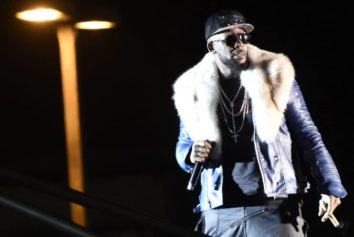Pope Benedict XVI shocked the world today by announcing his resignation from his position as leader of the Roman Catholic Church on Feb. 28 because of his health.
The news shocked both Catholics and nonCatholics around the world because it came with no forewarning and because it is so rare — Benedict is the first pope to resign in 600 years, and the first to do it voluntarily in nearly 800 years.
The pope, who is 85, made his stunning announcement at a private meeting of cardinals inside Vatican City. Because he made it in Latin, many of those in attendance didn’t immediately understand what had happened.
“After having repeatedly examined my conscience before God, I have come to the certainty that my strengths, due to an advanced age, are no longer suited to an adequate exercise of the Petrine ministry,” Benedict said in a statement.
A spokesman for the Vatican said they hope to have a new pope selected before Easter, meaning intense speculation about Benedict’s successor will begin immediately and intensify in coming weeks until the College of Cardinals makes their new selection.
Since two-thirds of the 1.2 billion Catholics live outside of Europe and the U.S., primarily in Africa and South America, there are many Vatican watchers who speculate that the cardinals may be ready to break with centuries of tradition and choose a nonwhite pope.
When Benedict, then known by his given name of Joseph Ratzinger, was chosen in 2005 at the age of 78, there were many who predicted that the front-runner was Nigerian Cardinal Francis Arinze. But the College of Cardinals selected Ratzinger instead. However, when Ratzinger became pope, Arinze took over from him as cardinal bishop of Velletri-Segni, a Catholic diocese close to Rome, which could bode well for him this time.
But Arinze is now 80 and has already retired, after 25 years working inside the Vatican. It’s not likely the cardinals will chose a pope only five years younger than the retiring Benedict. When Ratziner was selected at 78, he was the oldest chosen to head the church since the 18th century.
However, there are still a couple of non-white contenders considered on the short list: Cardinal Peter Turkson of Ghana, who at age 64 is probably the favorite to succeed Benedict, and Cardinal Oscar Rodriguez Maradiaga, 70, a Honduran who was President of the Latin American Episcopal Conference.
Turkson was appointed by Benedict four years ago to become president of the Pontifical Council for Justice and Peace and he is considered a favorite of the current pope, who the Vatican said will not have a role in choosing his successor.
The College of Cardinals is expected to convene in mid-March so that a new pope could be in place by Easter, which is on March 31.
While Benedict’s predecessor Pope John Paul II was known for his charisma, Benedict was seen as the most intellectual pontiff in generations.
“He had a hard act to follow in John Paul, who was bigger than life. Benedict suffered by comparison because he was much more shy, he wasn’t an actor, he preferred to write books and issue encyclicals rather than travel,” Rev. Thomas Reese, a Catholic writer and former editor of “America,” a Catholic magazine, told The Washington Post.
According to Reese, Benedict would be remembered as the pope who “cleaned up sex abuse,” because he demanded that bishops around the world institute more extensive preventative procedures, the way the U.S. Catholic Church has.
Still, just a small number of clergy have been held accountable for sexual abuse and removed. Reese said this “has been a problem. … However, he did a lot more than Pope John Paul did.”
Benedict’s decision to step down was seen by many Catholics interviewed today as exceeding generous and courageous, putting the needs of his flock above his own.

